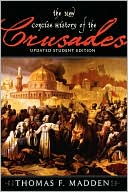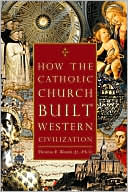here is #5. Notes on #5 are here.
Study #4 is here
#3 can be found here
#2 is here
#1 is here here..notes and thoughts on #1 are here.
The intro to the study is here .
As a reminder our focus questions, as we examine the genealogy narrative of Matthew:
who are they?
where are they from?
what place do they have-
-in the Biblical text
- in the story of salvation
-and in relation to Jesus specifically.
Are there other thoughts and questions as we read these lists?
Solomon
(from christiananswers)
Meaning: peaceful, (Hebrew: Shelomoh)
David's second son by Bathsheba, i.e., the first after their legal marriage (2 Samuel 12). He was probably born about B.C. 1035 (1 Chr. 22:5; 29:1). He succeeded his father on the throne in early manhood, probably about sixteen or eighteen years of age. Nathan, to whom his education was intrusted, called him Jedidiah, i.e., "beloved of the Lord" (2 Sam. 12:24,25).
He was the first king of Israel "born in the purple." His father chose him as his successor, passing over the claims of his elder sons:
"Assuredly Solomon my son shall reign after me."
His history is recorded in 1 Kings 1-11 and 2 Chr. 1-9. His elevation to the throne took place before his father's death, and was hastened on mainlyby Nathan and Bathsheba, in consequence of the rebellion of Adonijah (1 Kings 1:5-40). During his long reign of forty years the Hebrew monarchy gained its highest splendor.
This period has well been called the "Augustan age" of the Jewish annals. The first half of his reign was, however, by far the brighter and more prosperous; the latter half was clouded by the idolatries into which he fell, mainly from his heathen intermarriages (1 Kings 11:1-8; 14:21, 31).
(from catholic.org)
Our sources for the study of the life, reign, and character of Solomon are 1 Kings 1-9 ; and 2 Chronicles 1-9 . Solomon (Heb. "peaceful"), also called Jedidiah, i.e., "beloved of Yahweh ", was the second son of David by his wife Bathsheba, and the acknowledged favourite of his father. This may have been due partly to the fact that he, as a late offspring, considerably younger than David's other sons, was born in his father's old age, and partly to the intense love of David for Bathsheba and the beautiful qualities of Solomon himself. Solomon was not the logical heir to the throne, but David conferred it upon him instead of his older brothers, and in doing so he committed no wrong according to Israelitish ideas. Solomon was eighteen years old when he ascended the throne, or at least no older than this, and his successful reign of forty years speaks well for his intelligence, ability, and statesmanship. His reign offers a striking contrast to that of his father. It was almost entirely devoid of incident, and was marked by none of the vicissitudes of fortune which were so notable a feature in the career of David. Enjoying for the most part peaceful relations with foreign powers, and set free from the troubles that menaced him at home, Solomon was enabled to devote himself fully to the internal organization of his kingdom and the embellishment of his Court. In particular he gave much attention to the defence of the country (including the construction of fortresses), the administration of justice, the development of trade, and the erection of a national temple to the Almighty.
Rehoboam
Meaning: he enlarges the people
the successor of Solomon on the throne, and apparently his only son
He was the son of Naamah (his mother) "the Ammonitess," some well-known Ammonitish princess (1 Kings 14:21; 2 Chr. 12:13).
He was forty-one years old when he ascended the throne, and he reigned seventeen years (B.C. 975-958). Although he was acknowledged at once as the rightful heir to the throne, yet there was a strongly-felt desire to modify the character of the government. The burden of taxation to which they had been subjected during Solomon's reign was very oppressive, and therefore the people assembled at Shechem and demanded from the king an alleviation of their burdens. He went to meet them at Shechem, and heard their demands for relief (1 Kings 12:4).
After three days, having consulted with a younger generation of courtiers that had grown up around him, instead of following the advice of elders, he answered the people haughtily (6-15). "The king hearkened not unto the people; for the cause was from the Lord" (compare 11:31). This brought matters speedily to a crisis. The terrible cry was heard (compare 2 Sam. 20:1):
"What portion have we in David?Neither have we inheritance in the son of Jesse:To your tents, O Israel:Now see to thine own house, David" (1 Kings 12:16).
And now at once the kingdom was rent in twain. Rehoboam was appalled, and tried concessions, but it was too late (18). The tribe of Judah, Rehoboam's own tribe, alone remained faithful to him. Benjamin was reckoned along with Judah, and these two tribes formed the southern kingdom, with Jerusalem as its capital; while the northern ten tribes formed themselves into a separate kingdom, choosing Jeroboam as their king.
Rehoboam tried to win back the revolted ten tribes by making war against them, but he was prevented by the prophet Shemaiah (21-24; 2 Chr. 11:1-4) from fulfilling his purpose. (See JEROBOAM.)
In the fifth year of Rehoboam's reign, Shishak (q.v.), one of the kings of Egypt of the Assyrian dynasty, stirred up, no doubt, by Jeroboam his son-in-law, made war against him. Jerusalem submitted to the invader, who plundered the temple and virtually reduced the kingdom to the position of a vassal of Egypt (1 Kings 14:25,26; 2 Chr. 12:5-9).
A remarkable memorial of this invasion has been discovered at Karnac, in Upper Egypt, in certain sculptures on the walls of a small temple there. These sculptures represent the king, Shishak, holding in his hand a train of prisoners and other figures, with the names of the captured towns of Judah, the towns which Rehoboam had fortified (2 Chr. 11:5-12).
The kingdom of Judah, under Rehoboam, sank more and more in moral and spiritual decay. "There was war between Rehoboam and Jeroboam all their days." At length, in the fifty-eighth year of his age, Rehoboam "slept with his fathers, and was buried with his fathers in the city of David" (1 Kings 14:31). He was succeeded by his son Abijah (also known as Abijam).
Abijah (from christiananswers)
Meaning: father of Jehovah (i.e., possessor or worshipper of Jehovah).
This is a common name used by both men and women of the Old Testament.
The son of Rehoboam, whom he succeeded on the throne of Judah (1 Chr. 3:10). He is also called Abijam (1 Kings 14:31; 15:1-8). He began his three years' reign (2 Chr. 12:16; 13:1,2) with a strenuous but unsuccessful effortto bring back the ten tribes to their allegiance. His address to "Jeroboam and all Israel," before encountering them in battle, is worthy of being specially noticed (2 Chr. 13:5-12). It was a very bloody battle, no fewer than 500,000 of the army of Israel having perished on the field. He is described as having walked "in all the sins of his father" (1 Kings 15:3; 2 Chr. 11:20-22).
It is said in 1 Kings 15:2 that "his mother's name was Maachah, the daughter of Abishalom;" but in 2 Chr. 13:2 we read, "his mother's name was Michaiah, the daughter of Uriel of Gibeah." The explanation is that Maachah is just a variation of the name Michaiah, and that Abishalom is probably the same as Absalom, the son of David. It is probable that "Uriel of Gibeah" married Tamar, the daughter of Absalom (2 Sam. 14:27), and by herhad Maachah. The word "daughter" in 1 Kings 15:2 will thus, as it frequently elsewhere does, mean grand-daughter.


No comments:
Post a Comment